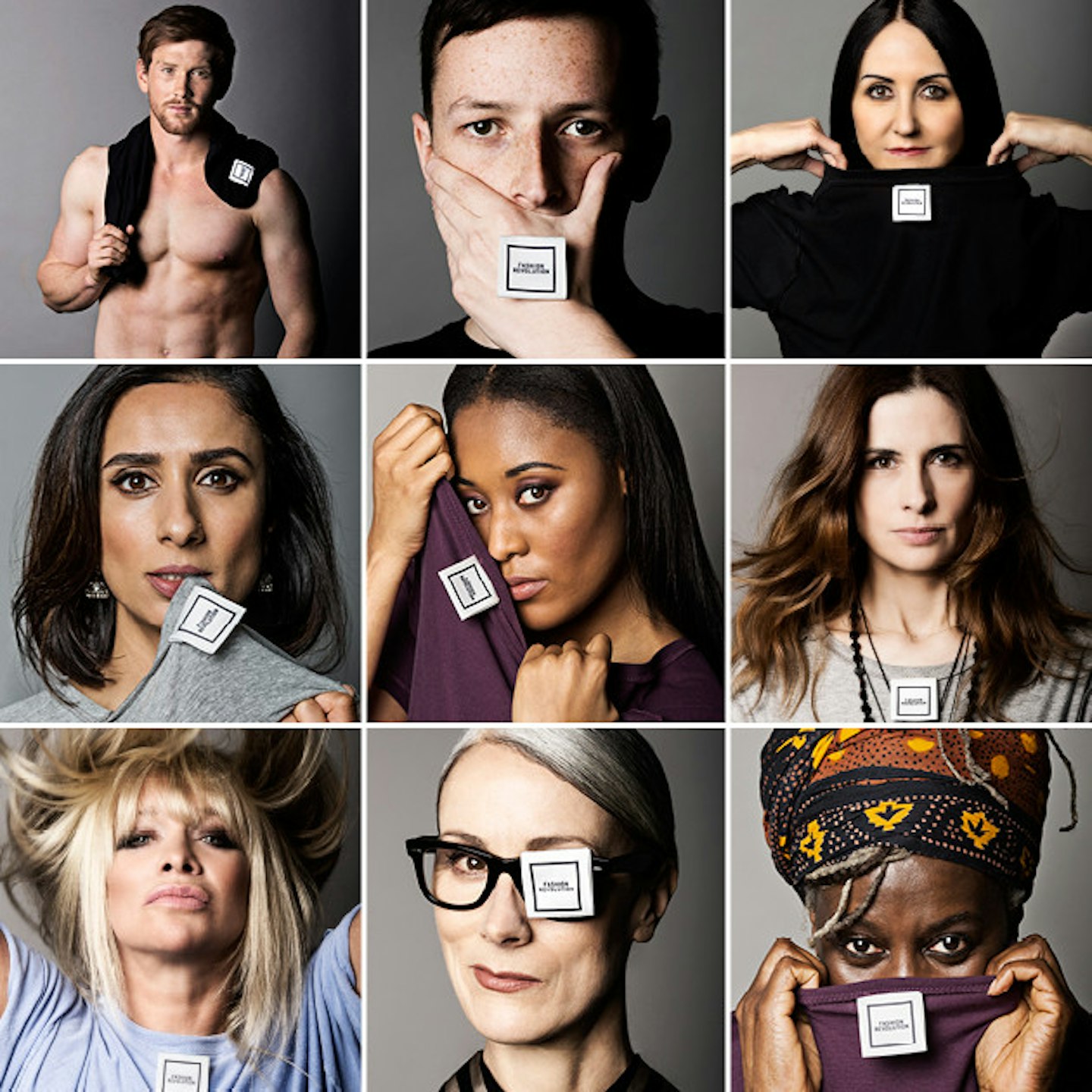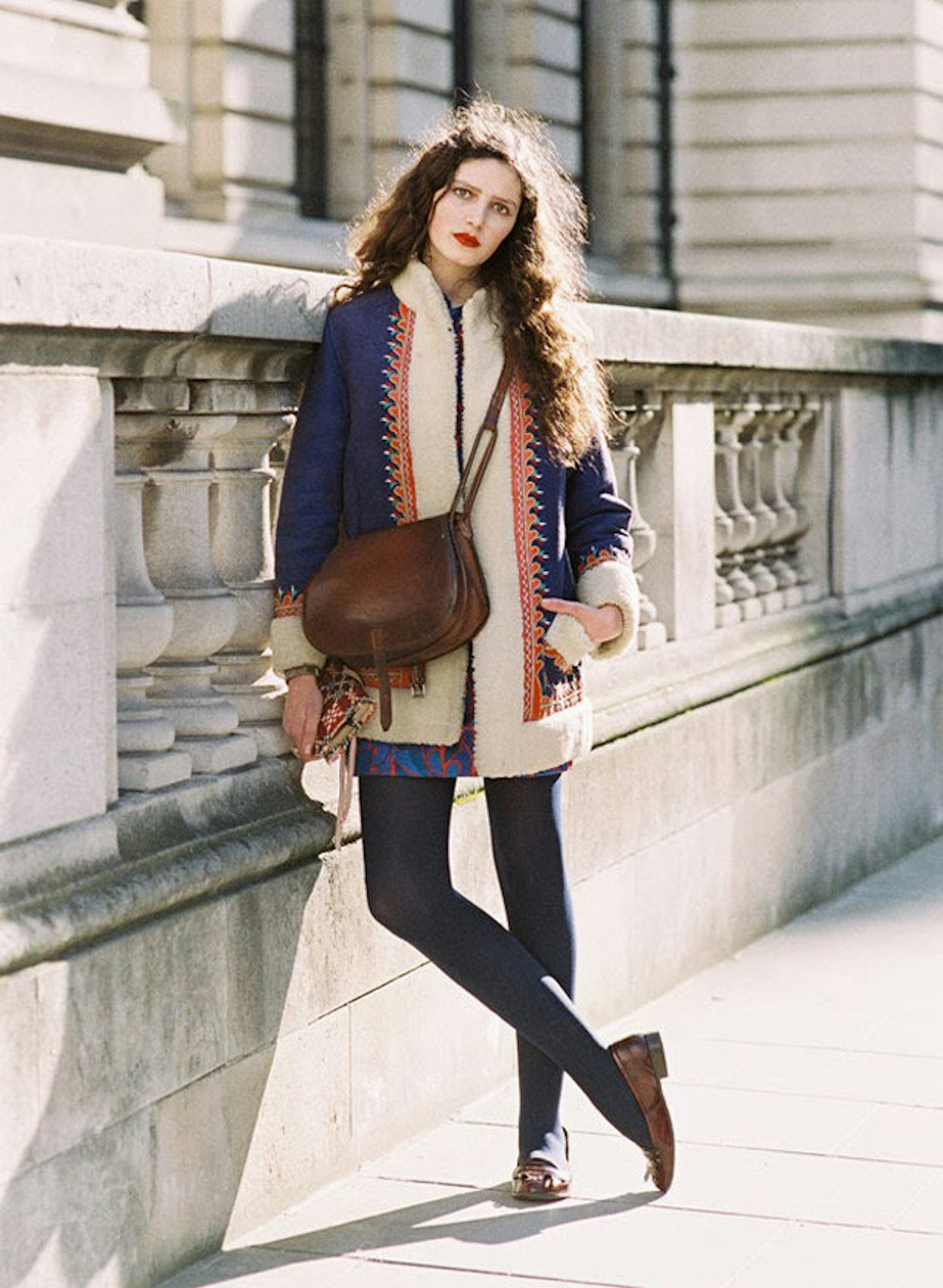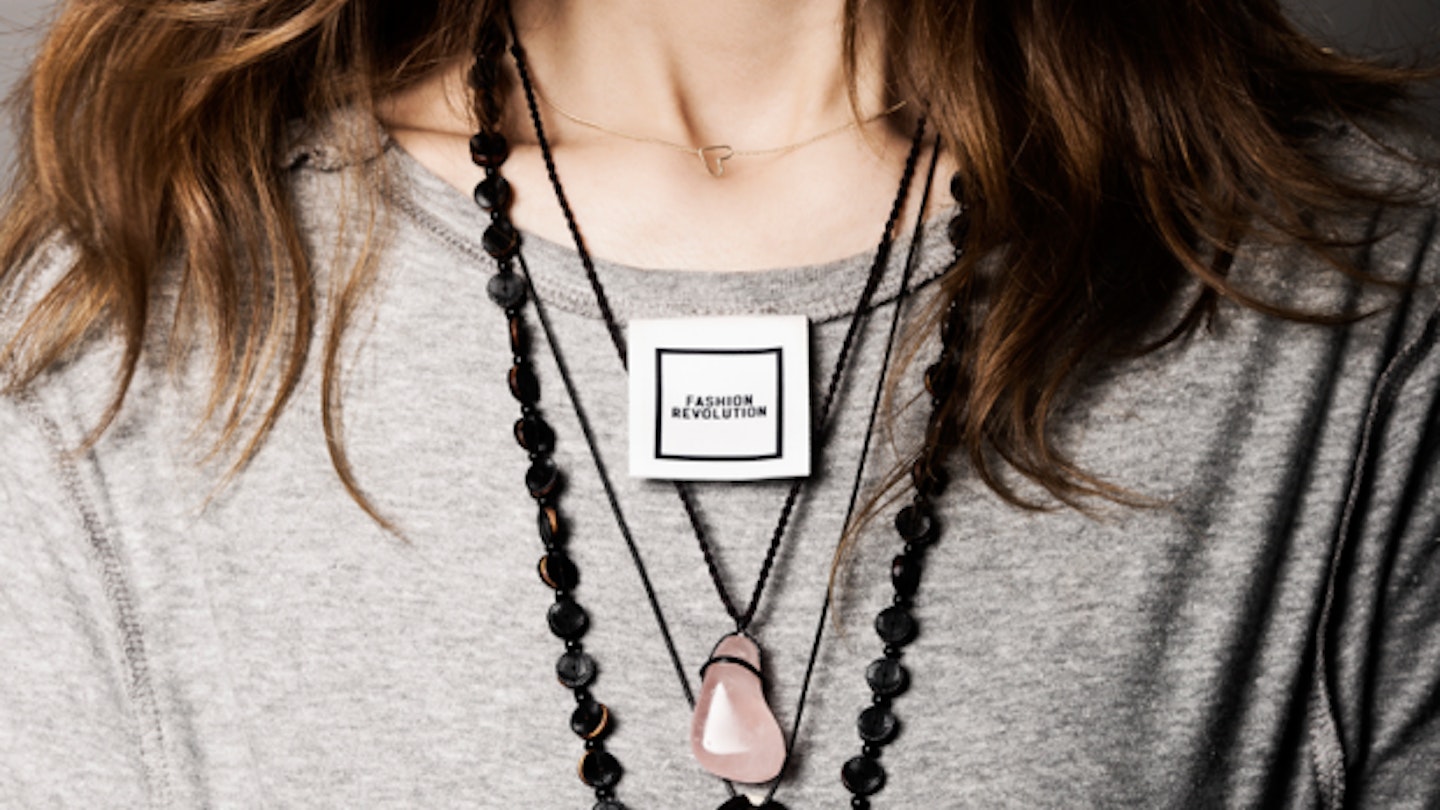How do you make something good come from the death of 1,133 Bangladeshi factory workers? It’s a tough ask, but one which Carry Somers, Orsola de Castro and their fellow sustainable fashion pioneers were set on answering in the aftermath of last year’s Rana Plaza factory collapse. Enter Fashion Revolution day, which is taking place this Thursday (the first anniversary of the disaster) in 54 countries across the world.
The idea for it came to Carry, who is also the founder of sustainable hat brand Pachacuti, while she was in the bath. ‘We were so shocked even though we had all been involved in sustainable fashion for a long time we knew we had to do something which would have a legacy but also increase people’s curiosity,’ she tells The Debrief, before going on to talk about the huge and diverse number of events taking place to celebrate the inaugural Fashion Revolution Day.

At Oxford Circus in London, students from University of the Creative Arts will be staging a fash-mob as a fun and inclusive alternative to those slightly scary groups of protesters who gather to shame shoppers. In Barcelona, a specially commisioned film is being shown on the underground and in Bangladesh garment workers themselves are getting involved in ‘Meet the Maker’ events (where you meet the makers of the clothes themselves) to demonstrate that there is another way of doing things.
There’s also a big social media driven idea behind the day. ‘We want everyone to ask who made their clothes by wearing their favourite things inside out and taking a selfie and then tweeting or instagram it to their favourite brands using the hashtag #insideout. Fashion Revolution Day is not about naming and shaming or vilifying,’ adds Orsola, who also designs beautiful dresses using luxury offcuts for her label From Somewhere, ‘But consumers are alienated from the people who make their clothes, and it’s not just a fast fashion problem, it’s a fashion problem. If 200,000 people start asking questions then that has to make brands think for at least five minutes!’
So should we be feeling guilty about those super-affordable high-street quick fixes which, let’s face it, make up a large proportion of our wardrobes? Well, yes and no. ‘If you only have £50 to spend, then make sure you are buying something which you really love,’ advises Orsola. Her brilliant tip for making shopping decisions is to ‘buy something with five other people in mind. I always think about whether I can share it and pass it on to my friends or cousins.’

A very stylish example that good fashion ethics don’t have to mean bad outfits is Rosalind Jana, the Junior Fashion Editor at Violet and blogger who won the Observer Ethical Well-Dressed Award last year. ‘It was when I read Lucy Siegle’s book To Die For when I was 16 that I realized that the clothes I wore were changing many people’s lives for the worse,’ she tells us, explaining her decision to eschew the high street in favour of second-hand, vintage and sustainably produced fashion. Even her knickers now come from the sustainable label Who Made Your Pants? ‘I can waste hours slathering over the ASOS Green Room,’ she reveals when we ask how she gets her fashion thrills. Goodone and Beautiful Soul are among her favourite sustainable fashion labels. ‘I would love it if collections with the conscious stamp didn’t look worthily conscious,’ she adds, probably echoning a sentiment we all share.
Rosalind and Orsola both acknowledge that being a better shopper is a big challenge. ‘My response was extreme because I very, very rarely shop on the high street now, but I know that is a very hard thing to do,’ sympathises Rosalind. ‘Be a detective, explore and be part of the revolution. You have the power,’ encourages Orsola. Perhaps it's time we lead with that power.
**Follow Bethan on @BethanHolt[
Pictures: Trevor Leighton, Vanessa Jackman
This article originally appeared on The Debrief.
